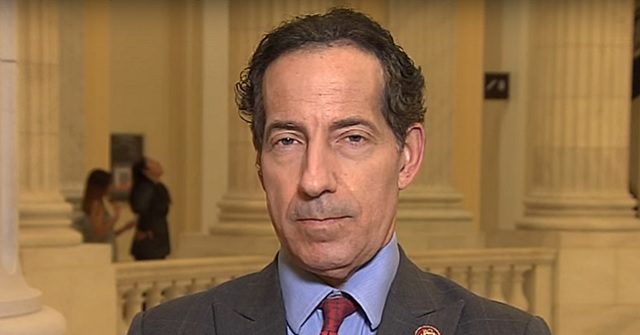Representative Jamie Raskin (D-MD) expressed grave concerns about the incoming administration’s intentions during an appearance on CNN’s “The Situation Room.” He characterized the political atmosphere as a significant battle, stating, “we’re in the fight of our lives.” Raskin specifically highlighted the potential dangers posed by the administration, which he claims aims to transform the Department of Justice into a tool for political vengeance and the persecution of individual citizens. This alarming perspective underscores a broader anxiety within the Democratic Party about the preservation of constitutional rights and the rule of law amid the changing political landscape.
Raskin also pointed out that the incoming administration appears to dismiss constitutional limits, particularly in regards to appropriations and the lawful use of government funding. He drew parallels between current threats and past actions taken by former President Donald Trump, who controversially redirected congressionally approved funds for his border wall project, violating established protocols. This historical context serves to illuminate the potential for similar overreach by the anticipated administration, indicating a pattern of behavior that Raskin believes may persist or even escalate in the future.
The representative committed to defending the Constitution vigorously against these threats, stating, “I have vowed that I will not allow the Constitution of the United States to be put into any kind of shredder or processor.” This declaration emphasizes his intention to safeguard foundational democratic principles, including the separation of powers, the First Amendment rights, and judicial independence. Raskin believes that these elements are essential to the functioning of American democracy, and he perceives the Judiciary Committee as a critical battleground where these principles must be defended.
Emphasizing his role as a protector of democratic norms, Raskin articulated the importance of resisting any attempts to undermine Congress’s authority and prioritize the rule of law. He aims to confront any administrative actions that may infringe on the lawful prerogatives of Congress, reaffirming the idea that a proper check on executive power is vital for maintaining a functioning democracy. By positioning the Judiciary Committee at the forefront of this struggle, Raskin suggests that legislative oversight is key in combating executive overreach.
In the midst of these concerns, Raskin highlighted the broader implications for American society if the incoming administration is allowed to act without regard for constitutional norms. He warned that unchecked political retaliation and manipulation of government institutions could lead to a culture of fear and division, undermining public trust in the government and eroding citizens’ rights. This vision of a potential future underlines the urgency he feels about the current political situation and the necessity of active engagement to preserve democratic ideals.
Ultimately, Raskin’s commentary serves as a rallying cry for those concerned about the trajectory of the country under a new administration. His spirited defense of constitutional values reflects a commitment not only to resist perceived threats to democracy but also to ensure that the foundational principles of governance remain intact. The fight ahead, as Raskin frames it, is not solely for the immediate political landscape but for the enduring health of the republic and the safeguard of individual liberties for all citizens.

